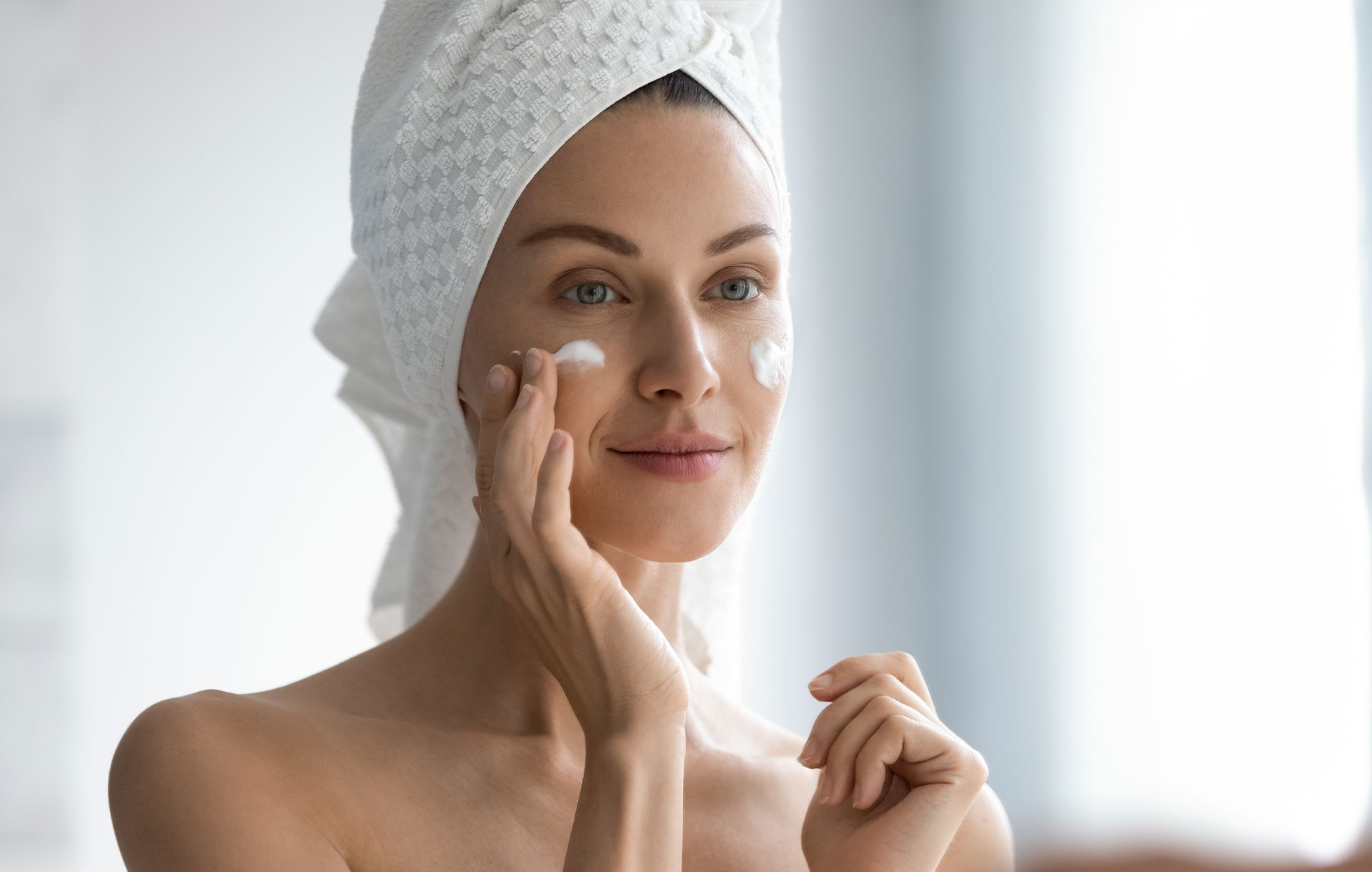Nutrition to enhance treatments
Factors such as diet, lifestyle, environment and stress can impact the rate at which our tissues age biologically. All body organs experience the consequences of aging, and the appearance of our skin reflects the extent to which age has impacted our overall health.
Nutritional requirements for healthy skin are the same as those for your body. Studies have shown healthy eating and lifestyle will improve skin aging. Eating key whole foods is the safest way to promote entire body health and provide the essential components necessary for maintaining a more youthful appearance.
[ihc-hide-content ihc_mb_type=”show” ihc_mb_who=”2,4,6,7,5″ ihc_mb_template=”3″ ]
Topical treatments alone can protect the skin’s outer layers but do not always protect the deeper layers. Systemic incorporation of nutrients is a better way to help strengthen the skin’s natural defenses to prevent disease and decrease cancer risk, as well as protect deeper skin layers from functional and structural decline.
By combining oral and topical antioxidants and nutrients, they can work together to enhance their beneficial effects in all layers of your skin.
Vitamins and Nutrients Associated with Antioxidant Activity
• Vitamin A (Retinol): carrots, pumpkins, sweet potatoes, mangos, tomatoes, papaya, kale.
• Vitamin B3 (Niacinamide): all the B vitamins are easily obtainable from natural foods.
• Vitamin C (Ascorbic acid): citrus fruits and dark green leafy vegetables.
• Vitamin D (Dihydroxycholecalciferol): fatty fish, fish oil, egg yolk, enriched milk.
• Vitamin E (Tocopherol): found in a variety of nuts, vegetable oils, green leafy vegetables.
• Coenzyme Q10: found in oily fish, nuts, spinach, broccoli, whole grains.
• Essential fatty acids (Omega 3 and 6 fatty acid family): vegetable oils, fish oil, walnuts.
• Phytochemicals (Resveratrol): fruits, vegetables, olive oil, chocolate, coffee, green tea, wine.
• Phytoestrogens (Isoflavones): soy, lentils, beans, red clover.
Wholefoods Nutrition
High fiber, low fat, plant-based eating has been shown to improve overall health. Diets rich in fruits and vegetables are associated with lower risks for many different types of cancers, including several originating in the skin. Healthier diets have also been shown to reduce the signs of skin aging (wrinkled appearance, dryness. and thinning).
There are scientifically proven relationships between specific food groups and skin wrinkling. High intakes of vegetables, olive oil, unsaturated fats, and legumes, with low intakes of milk, sugar, butter and margarine have the least amount of skin wrinkling in sun-exposed areas. Eating meat and full-fat dairy, cakes and pastries is correlated with skin wrinkling.
Probiotics
Probiotics are live microorganisms that confer a health benefit on the host and have been shown to slow the skin manifestations of both intrinsic and extrinsic aging. They improve gut barrier function and will protect the cutaneous immune system from damage due to exposure to ultraviolet radiation. Probiotics are naturally present in yogurt, kefir, miso paste, and fermented beverages.
Glycation and Advanced Glycation End Products (AGEs)
Glycation and the production of AGEs are two diet-related processes that affect skin health and aging. Advanced glycation end products are pro-inflammatory. They accumulate in the aging body and interfere with the function of many protein structures, including the skin.
Glycation occurs when a sugar molecule bonds with a protein or lipid. High serum glucose levels increase protein glycation, and the consumption of AGEs contributes to the total body load of these substances. At high temperatures, sugars readily bind to proteins to form AGEs. For example, they manifest as grill marks on grilled meat and create molecules that impart flavor and odor to foods.
Foods with high levels of AGEs include donuts, barbecued meats, and dark-colored soft drinks.
There are several ways to mitigate the damaging effects of glycation:
• Avoid foods with high sugar content to reduce serum glucose levels.
• Grilling, frying (especially in deep fat), or roasting produces high levels of AGEs compared with cooking processes involving water.
• Certain foods can inhibit the production of AGEs. These include spices (cinnamon, cloves, oregano, and allspice), alpha-lipoic acid (spinach, broccoli, yeast extract), resveratrol (red grapes and red wine), and aspirin.
You can control many of the factors that adversely affect your skin:
Sun Exposure: Use a physical sun block that has an SPF 30 or higher, protects against UVA and UVB, is water resistant, and contains antioxidants. Wear protective clothing and seek shade.
Air Pollution: Routine cleansing, daily use of topical antioxidants, consume foods with high levels of antioxidants, and wear hats and scarves to protect hair.
Smoking: Counseling and medication, if necessary.
Diet: High intake of fruits, vegetables, nuts, olive oil, fish, whole grains, lean protein, legumes, and monosaturated fat. Low intake of refined carbohydrates, sugar products, processed foods, butter, saturated fat, fried food, red and processed meat.
Exercise: Four or more hours of high-intensity aerobic exercise every week.
Sleep: Eight hours nightly is recommended.
Dental Hygiene and Care: Good oral hygiene and regular dental examinations.
Stress: Mindfulness meditation, yoga, tai chi, biofeedback, and self-hypnosis.
Hormones: The risk-to-benefit ratio of hormone replacement therapy needs to be evaluated individually. Calcium 1,000 mg (under 50 years old) to 1,200 mg (over 50 years old) and Vitamin D 400 IU mg (under 50 years old) to 1,000 IU mg (over 50 years old) daily in diet and supplements.
[/ihc-hide-content]













